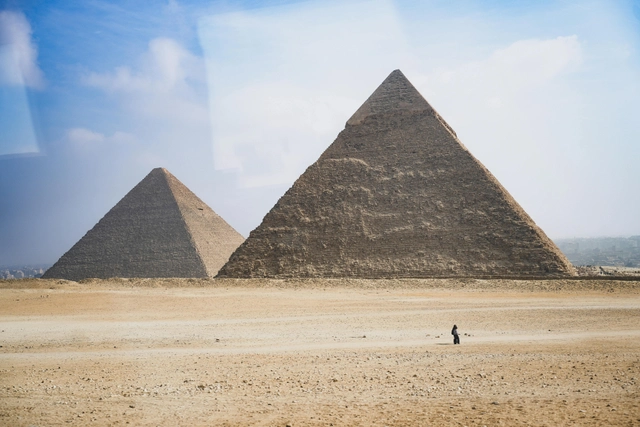Ancient Civilizations
An in-depth exploration of major ancient civilizations and their contributions to humanity
1. Overview of Ancient Civilizations
Ancient civilizations laid the foundations of modern society through their advancements in culture, technology, governance, and philosophy.
- Origins of Civilizations: The first human societies formed in river valleys and fertile regions, where stable water sources and rich soils allowed agriculture to flourish. These areas, like the Nile, Tigris-Euphrates, Indus, and Yellow River valleys, saw the rise of complex societies around 3,000 BCE.
- Defining Characteristics: Ancient civilizations were characterized by urban centers, social hierarchies, organized governments, and symbolic systems of communication such as writing. Each civilization had unique cultural practices, but most developed similar structures to manage large populations.
2. Ancient Mesopotamia
Ancient Mesopotamia, located between the Tigris and Euphrates rivers, is often called the 'Cradle of Civilization' due to its early developments in agriculture, writing, and law.
- Sumerians and the First Cities: The Sumerians were among the first to create city-states like Uruk, Ur, and Eridu around 4,000 BCE. They developed early forms of writing, known as cuneiform, and complex systems of governance.
- Code of Hammurabi: King Hammurabi of Babylon (c. 1792–1750 BCE) introduced one of the earliest and most complete written legal codes. The Code of Hammurabi set out laws for various aspects of daily life, influencing legal systems for centuries.
3. Ancient Egypt
Ancient Egypt flourished along the Nile River, developing complex social and religious systems and monumental architecture like pyramids and temples.
- The Pharaohs and Divine Kingship: Egyptian society was ruled by pharaohs who were seen as gods on Earth. This divine kingship established the basis for Egypt’s theocratic government, with rulers considered intermediaries between gods and people.
- Pyramids and Monumental Architecture: The Egyptians built massive pyramids as tombs for their pharaohs, with the Great Pyramid of Giza standing as one of the Seven Wonders of the Ancient World.
4. Indus Valley Civilization
The Indus Valley Civilization, located in present-day Pakistan and India, was notable for its advanced urban planning, architecture, and social organization.
- Urban Planning and Sanitation: The Indus cities, like Harappa and Mohenjo-Daro, featured grid patterns and sophisticated drainage systems, indicating a high level of civic planning.
- Trade Networks: Indus Valley inhabitants engaged in extensive trade with neighboring regions, exchanging goods such as beads, textiles, and precious stones.
5. Ancient China
Ancient China, beginning with the Shang Dynasty, introduced writing, centralized rule, and philosophical schools that influenced future civilizations.
- Dynastic Rule: The Shang and Zhou dynasties established a tradition of hereditary rule in China, with rulers believed to be granted power by the Mandate of Heaven.
- Philosophical Contributions: Ancient China was the birthplace of Confucianism and Taoism, which continue to influence Chinese culture and philosophy.
6. Ancient Greece
Ancient Greece, known for its advancements in philosophy, arts, and government, heavily influenced Western civilization.
- Democracy in Athens: Athens introduced early forms of democracy, allowing male citizens to participate in decision-making assemblies and influencing modern political systems.
- Philosophy and Science: Greek thinkers like Socrates, Plato, and Aristotle explored ethics, metaphysics, and science, setting the groundwork for Western philosophy and scientific thought.
7. Ancient Rome
The Roman Empire shaped law, governance, engineering, and architecture, leaving a legacy that endures in modern Western culture.
- The Roman Republic and Empire: Rome developed a republic system where citizens elected representatives. Later, under emperors, the Empire expanded to become one of the largest in history.
- Roman Law: Roman law influenced modern legal systems. Concepts like 'innocent until proven guilty' were established under Roman jurisprudence.
8. The Maya Civilization
The Maya, located in Central America, are known for their advanced knowledge in astronomy, mathematics, and architecture.
- Astronomy and Calendar Systems: The Maya developed accurate calendars and made astronomical observations that aligned with their religious beliefs and agricultural cycles.
- Architecture and City Planning: Mayan cities featured grand pyramids and palaces. Their architectural style and urban planning reflect complex social structures and religious practices.
9. The Aztec Civilization
The Aztec civilization, based in present-day Mexico, was known for its military strength, rich mythology, and elaborate ceremonies.
- Tenochtitlan and the Empire: The Aztecs established Tenochtitlan as their capital, a highly organized city built on a lake, showcasing their engineering skills.
- Mythology and Religion: The Aztecs practiced rituals to honor their gods, including large ceremonial sacrifices. Their mythology influenced their worldview and governance.
Summary
- Ancient civilizations formed the foundation of modern culture, governance, and technology.
- Regions like Mesopotamia, Egypt, and the Indus Valley were among the first to establish organized societies.
- The achievements of civilizations like the Greeks, Romans, and Chinese influenced modern science, law, and philosophy.
- Civilizations across the Americas, like the Maya and Aztecs, developed advanced systems of mathematics, architecture, and governance.
- Studying ancient civilizations helps us understand the origins of human society and the legacy of past empires.
References
- - The Ancient World: A Complete Guide (Book by Richard Miles)
- - The Oxford Handbook of Ancient Civilizations (Book by Peter Fibiger Bang and Walter Scheidel)
- - History of Mesopotamia (Encyclopedia Britannica)
- - Ancient Egypt: Anatomy of a Civilization (Book by Barry J. Kemp)
- - The Indus Civilization: A Contemporary Perspective (Book by Gregory L. Possehl)
- - Ancient China: A History (Book by John S. Major)
- - A History of Ancient Greece (Book by Claude Mossé)
- - Ancient Rome: The Rise and Fall of an Empire (Book by Simon Baker)
- - The Ancient Maya (Book by Robert J. Sharer and Loa P. Traxler)
- - Aztecs: The Fall of the Empire (Book by Ian H. Thompson)
- - The Human Past: World Prehistory and the Development of Human Societies (Book by Chris Scarre)
keywords: ancient civilizations; history; culture; empires; influence.
Partner Suggestion
Top 10 Tips for Gardening Beginners

